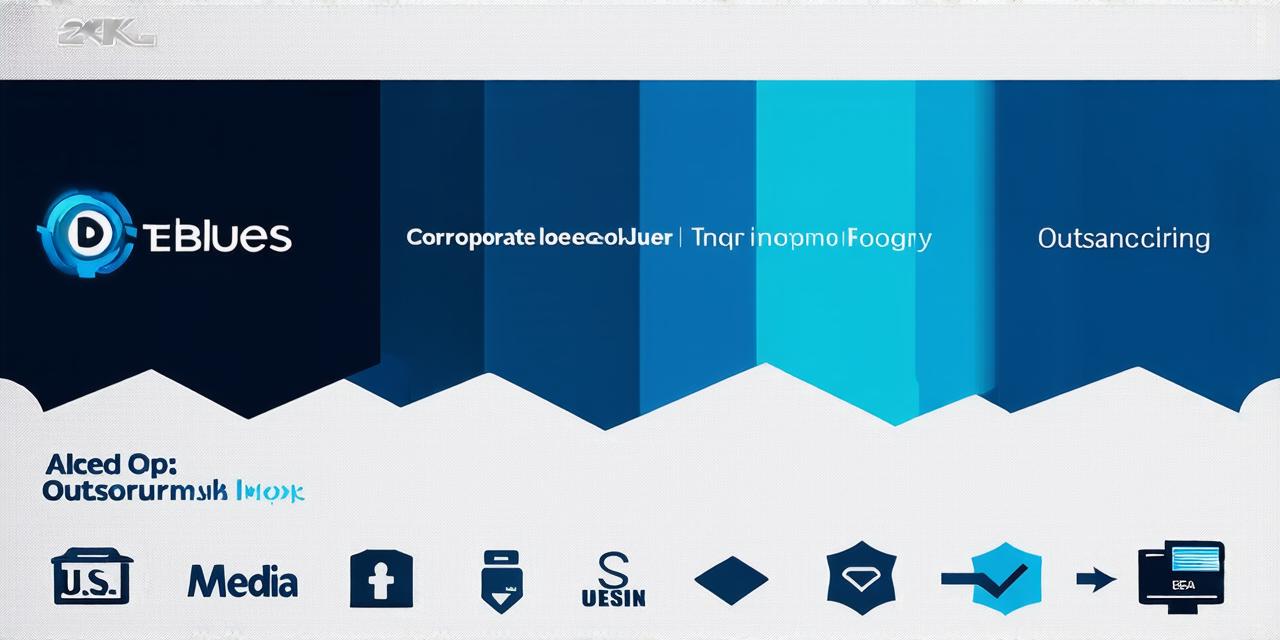Outsourcing is a process in which a company hires another company to perform specific tasks on its behalf. This process has become increasingly popular among businesses of all sizes, as it allows them to focus on their core competencies while outsourcing non-core activities such as accounting, marketing, and customer service. In the case of US media, outsourcing often involves the use of freelance journalists or independent contractors to produce content for news organizations.
Outsourcing in US Media: A Growing Trend
The practice of outsourcing content production is becoming more common among US media companies. According to a report by Pew Research Center, the number of freelance journalists employed by US news outlets has increased significantly in recent years. In 2017, approximately 54% of all US newspaper journalists were freelancers, compared to just 36% in 2009.
One reason for this trend is the increasing demand for digital content. With the rise of social media and online news platforms, there has been a growing need for high-quality, engaging content that can be quickly produced and distributed. Freelance journalists are often well-suited to meet these demands, as they have the flexibility to work on multiple projects simultaneously and can easily adapt to changing technologies.
Another factor driving outsourcing in US media is the increasing competition among news organizations. With so many options available to consumers, news outlets must constantly strive to produce unique, compelling content that stands out from the crowd. Outsourcing allows them to tap into a wider pool of talent and expertise, enabling them to produce high-quality content more quickly and efficiently than if they relied solely on in-house staff.
Case Studies: The Benefits and Challenges of Outsourcing in US Media
To better understand the benefits and challenges of outsourcing in US media, let’s look at a few case studies.
CNN
In 2019, CNN launched its “CNN Freelance” program, which allows independent journalists to pitch stories directly to the network. This program has been successful in providing CNN with a steady stream of high-quality content that reflects the diversity and expertise of the freelance community. However, it has also presented challenges for the network in terms of managing a large pool of contributors and ensuring consistency in the quality of the content produced.
The New York Times
The Times has long relied on a network of freelance journalists to supplement its in-house staff. In recent years, the paper has expanded this network by launching a program called “The Freelancer,” which provides training and resources to help independent journalists develop their skills and build their careers. This program has been successful in fostering a strong sense of community among the Times’ freelance contributors, but has also presented challenges in terms of maintaining editorial standards and managing a large number of independent contractors.

BuzzFeed
BuzzFeed has built its business model around outsourcing content production to a network of freelance writers and editors. The company has been successful in producing high-quality, shareable content that resonates with its target audience, but has also faced challenges in terms of managing a large pool of contributors and ensuring consistency in the quality of the content produced.
Research: The Impact of Outsourcing on US Media Quality and Credibility
While outsourcing can provide many benefits to US media companies, it can also have negative impacts on the quality and credibility of the content produced. A 2018 study by the Pew Research Center found that freelance journalists are less likely to be members of professional organizations and are more likely to work in isolation, which can make it difficult for them to maintain high ethical standards and build strong professional networks.
Additionally, outsourcing can lead to a lack of consistency in the quality of the content produced. When a news organization relies heavily on freelance contributors, it can be difficult to ensure that all content meets consistent editorial standards and reflects the organization’s brand identity. This can erode trust with readers and undermine the credibility of the organization as a whole.
Expert Opinions: The Importance of Building Strong Relationships with Freelance Contributors
To mitigate these challenges, it is important for US media companies to build strong relationships with their freelance contributors.
